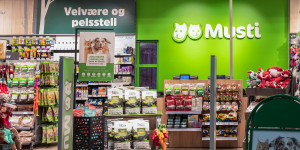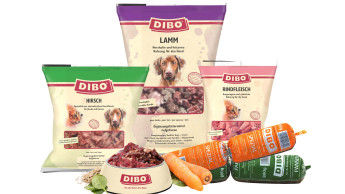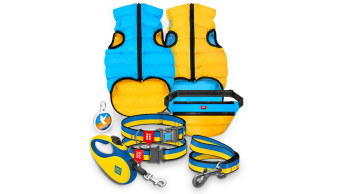

Keeping small mammals as pets still occurs on a very limited scale in many countries. As such, there is huge potential for development for the pet product industry.
A look at the small mammal population figures in Europe for 2010, as published by the European industry federation Fediaf last year, confirms that small animals have no great significance for the market in many countries as yet. In eastern and central European countries in particular, small mammals are even less widespread than in western Europe. Fediaf puts the population figure in Poland at 800 000, while the figure for the Czech Republic is 160 000. Only 370 000 small mammals are kept in Hungarian households, according to Fediaf. The exception in eastern Europe is Russia with a population of 5.3 million small mammals, a figure only matched in Europe by Germany with the same number.Northern Europe has a comparatively small number of small animals too. The picture is different in western and southern Europe, however. Spain has the third biggest population in Europe at 3.85 million, followed by France and the UK (3 million each), Italy (2.5 million) and the Netherlands (1.7 million). Small animals are also very popular in Belgium, a country of only 10 million inhabitants, which explains the relatively high figure of 1.3 million small mammals.These pets can only be said to have achieved mass popularity in the USA. Estimates suggest that over 20 million small mammals are kept between New York and Los Angeles, and the figure is growing year on year.Presentation is criticalThe level of popularity of small mammals as pets depends heavily on how they are presented in a country's pet stores. Since the pet supplies trade is advancing, the prospects of the market for small mammals benefiting from this too are very good. Large-format pet stores have ample space in which to present small mammals in a way that will entice customers to buy such a pet.The main customers for small mammals are children, and so it makes sense to tailor the presentation of the small mammal department to kids, so that junior customers feel comfortable there. Animal experts rightly warn, however, that the pets should be protected in their enclosures from children who are too boisterous wishing to stroke them.Two years behindThe market for small mammals was characterised by a considerable lack of originality for a long time. Claire Hamblion, small animal and exotics marketing manager at the UK company Supreme Petfoods, explained to PET worldwide last year that the small mammal market is two years behind the market for dogs and cats. Momentum is growing in the category, however; as with dogs…
Related articles
Read also

 Menü
Menü






 2/2012
2/2012












 Newsletter
Newsletter